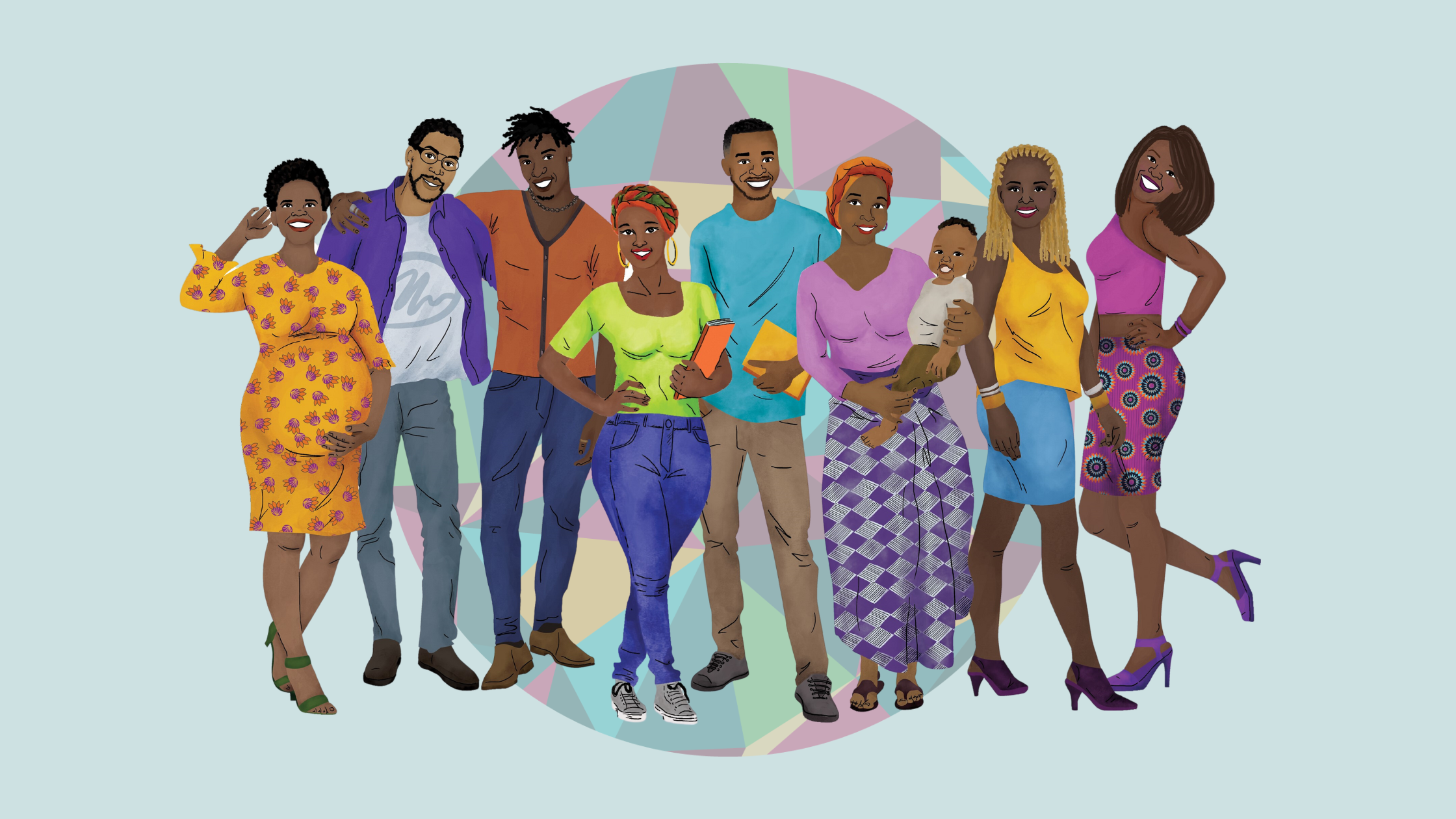Allison Cole, FHI 360
Margaret Akinyi Atieno, LVCT Health
Morgan Garcia, FHI 360
Marie Merci Niyibeshaho, LVCT Health
Caleb Owino, LVCT Health
This post was first published on Johns Hopkins University’s Breakthrough ACTION and RESEARCH.
Gender-diverse adolescents and young people face barriers to accessing and taking HIV preventive medication.
The Maximizing Options to Advance Informed Choice for HIV Prevention (MOSAIC) project is rolling out novel HIV pre-exposure prophylaxis (PrEP) methods across 10 countries in Africa. MOSAIC, funded by the U.S. Agency for International Development and the President’s Emergency Fund for AIDS Relief, seeks to elevate the voices of potential PrEP users; we understand adolescent girls and young women (AGYW) face barriers to PrEP use at the community and clinic levels, including provider attitudes.
These challenges are magnified for LGBTQIA+* AGYW, and other sexual and gender minority (SGM) people. MOSAIC, under its Catalyzing Access to New Prevention Products to Stop HIV study, aimed to address the barrier of negative provider attitudes by adapting the original, family planning-focused Breakthrough ACTION Empathways card deck to help build provider empathy for LGBTQIA+ and SGM PrEP clients of all ages.
MOSAIC started with the Gen-N version of Empathways, an earlier adaptation of the tool, which Jhpiego created under the Collaboration for HIV Prevention Options to Control the Epidemic activity for use by AGYW and PrEP providers.
Nothing for us, without us.
From October to November 2022, MOSAIC teams in Eswatini, Kenya, and South Africa collaborated with 26 members of LGBTQIA+ communities to tailor Empathways to increase empathy for LGBTQIA+ and SGM clients amongst PrEP providers.
LGBTQIA+ discussion participants in Kenya and Eswatini emphasized the importance of inclusive pronouns and using the term “young person” instead of young woman. The team carried this insight into the tool’s instructions, asking participants to share their names and pronouns, with a definition of pronouns to support learning. Collaborators in Kenya also stressed the need for additional inclusive language, such as “contraceptive planning,” because “family planning” implies that all people are planning for families.

In South Africa, collaborators suggested using the terms “queer” and “trans-diverse individual” and highlighted the importance of confidentiality when implementing the tool. Although providers take an oath of confidentiality, community members who participate in the activity have no such oath. Before the activity begins, LGBTQIA+ Empathways facilitators instruct participants to respect the privacy of everyone in the room, which is especially important for LGBTQIA+ groups. The MOSAIC project also suggests activity organizers work directly with LGBTQIA+-focused and -led organizations.
Empathways includes scenario cards that reflect possible experiences a person may encounter when trying to initiate PrEP. Collaborators updated three Gen-N Empathways scenarios to highlight common experiences, such as that of a genderqueer person who witnesses provider bias in a health care facility, a transgender woman who seeks advice on starting PrEP after a friend was assaulted, and a transgender man who wants to have sex with their boyfriend for the first time. Eswatini collaborators developed an additional scenario about a transgender woman who believes oral contraception can be used as gender-affirming hormone therapy. After each scenario, participants are asked one or two empathy-focused questions, inviting them to imagine how the characters might feel, think, and act in those situations.

Since 2023, the MOSAIC Kenya team has utilized the Gen-N and LGBTQIA+ adaptations of Empathways to reduce stigma and improve the capacity of health care providers to offer PrEP choice services to AGYW with diverse gender identities and sexualities. The team also collaborated with World Vision to use LGBTQIA+ Empathways as part of the training of more than 100 DREAMS (Determined, Resilient, Empowered, AIDS-free, Mentored and Safe) providers. After experiencing LGBTQIA+ Empathways, providers expressed a deeper understanding of the biases they had held when offering PrEP to young people.
LGBTQIA+ Empathways has not been formally evaluated but is a promising approach to improving provider attitudes toward PrEP use by young people and all members of LGBTQIA+ and SGM communities. Given the changing landscape for LGBTQIA+ communities in many countries, programs should use discretion and prioritize LGBTQIA+ communities’ safety when considering whether to implement LGBTQIA+ Empathways. However, recent developments also highlight the need for increased empathy and understanding toward LGBTQIA+ individuals to combat the stigma and violence that prevent members of these communities from making their own sexual and reproductive choices freely and safely.

Access the LGBTQIA+ Empathways resources and discover other Empathways adaptations.
*LGBTQIA+ often refers to lesbian, gay, transgender, queer or questioning, intersex, asexual, and more gender identities, though depending on the source, some terms may vary in the acronym’s definition.
Featured Graphic: OPTIONS


